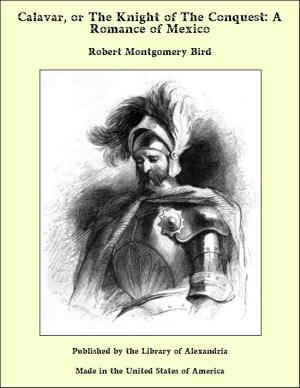| Author: | Richard Proctor | ISBN: | 9781465514714 |
| Publisher: | Library of Alexandria | Publication: | March 8, 2015 |
| Imprint: | Language: | English |
| Author: | Richard Proctor |
| ISBN: | 9781465514714 |
| Publisher: | Library of Alexandria |
| Publication: | March 8, 2015 |
| Imprint: | |
| Language: | English |
The false ideas prevalent among all classes of the community, cultured as well as uncultured, respecting chance and luck, illustrate the truth that common consent (in matters outside the influence of authority) argues almost of necessity error. This, by the way, might be proved by the method of probabilities. For if, in any question of difficulty, the chance that an average mind will miss the correct opinion is but one-half—and this is much underrating the chance of error—the probability that the larger proportion of a community numbering many millions will judge rightly on any such question is but as one in many millions of millions of millions. (Those who are too ready to appeal to the argument from common consent, and on the strength of it sometimes to denounce or even afflict their fellow men, should take this fact—for it is fact, not opinion—very thoughtfully to heart.) I cannot hope, then, since authority has never been at the pains to pronounce definitely on such questions respecting luck and chance as are dealt with here, that common opinion, which is proclaimed constantly and loudly in favour of faith in luck, will readily accept the teachings I have advanced, though they be but the common-place of science in regard to the dependence of what is commonly called luck, strictly, and in the long run, uniformly, on law. The gambling fraternity will continue to proclaim their belief in luck (though those who have proved successful among them have by no means trusted to it), and the community on whom they prey will, for the most part, continue to submit to the process of plucking, in full belief that they are on their way to fortune.
The false ideas prevalent among all classes of the community, cultured as well as uncultured, respecting chance and luck, illustrate the truth that common consent (in matters outside the influence of authority) argues almost of necessity error. This, by the way, might be proved by the method of probabilities. For if, in any question of difficulty, the chance that an average mind will miss the correct opinion is but one-half—and this is much underrating the chance of error—the probability that the larger proportion of a community numbering many millions will judge rightly on any such question is but as one in many millions of millions of millions. (Those who are too ready to appeal to the argument from common consent, and on the strength of it sometimes to denounce or even afflict their fellow men, should take this fact—for it is fact, not opinion—very thoughtfully to heart.) I cannot hope, then, since authority has never been at the pains to pronounce definitely on such questions respecting luck and chance as are dealt with here, that common opinion, which is proclaimed constantly and loudly in favour of faith in luck, will readily accept the teachings I have advanced, though they be but the common-place of science in regard to the dependence of what is commonly called luck, strictly, and in the long run, uniformly, on law. The gambling fraternity will continue to proclaim their belief in luck (though those who have proved successful among them have by no means trusted to it), and the community on whom they prey will, for the most part, continue to submit to the process of plucking, in full belief that they are on their way to fortune.















